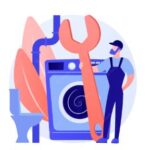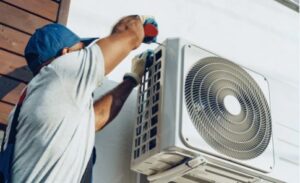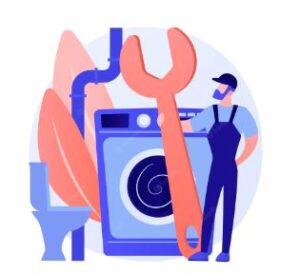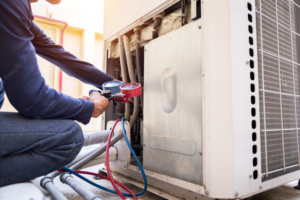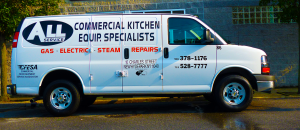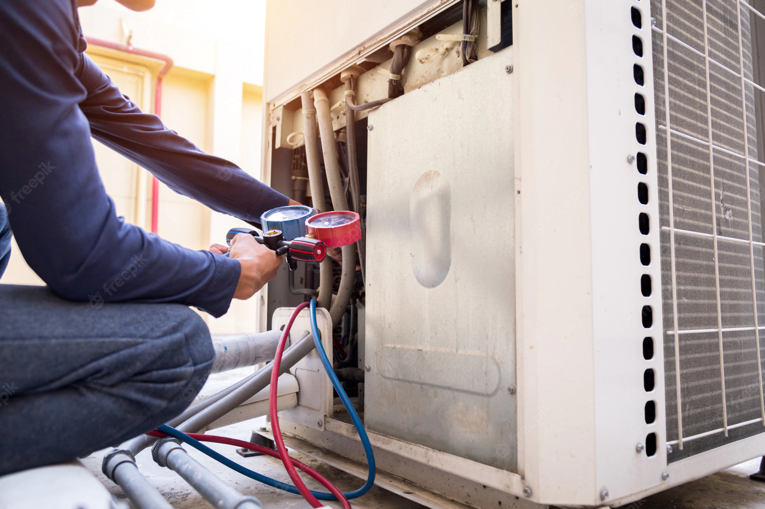
Winter is a tough time for most people including enterprises. Whether you’re living in a cold climate or just must deal with the cold, HVAC can be a real pain.
In this article, we will explore how Commercial HVAC systems work in winter and some of the ways you can combat the cold using this technology. From thermostats to insulation, read on to learn everything you need to know about HVAC in winter.
What is HVAC and How Does It Work in Winter?
In the winter, air conditioning is crucial in keeping your home livable. For the AC to work efficiently, you need a reliable HVAC system. Here’s what you need to know about how HVAC systems work in the winter:
- Air is circulated by fans and ducts through your home. In the summer, when the air conditioner is running, the HVAC system circulates the air through the home. In the winter, when it’s cold outside, the HVAC system uses fans to circulate the air.
- The cool air enters through the windows and doors and warms up as it moves throughout the house. In the winter, when it’s cold outside, your HVAC system needs to work a little bit harder to keep your house at a comfortable temperature. The HVAC system then uses that warm air to heat up the rest of the house.
- You can change the settings on your AC to adjust how cool or warm the air feels.
Types of HVAC Systems and How They Work in Winter
In cold weather, your heating and cooling system must work harder to keep your home comfortable. A furnace or air conditioning unit uses a variety of methods to circulate air and heat throughout your home. The three main types of HVAC systems are mechanical, electrical, and thermal.
Mechanical systems use pumps and fans to move air around the home. This type of system is usually less efficient than other types, but it’s typically cheaper to maintain.
Electrical systems use electricity to turn on and off pumps and fans. They’re more efficient than mechanical systems, but they require regular maintenance to keep them working properly.
Thermal systems use heat instead of air to circulate through the home. This type of system is more expensive to purchase, but it’s more efficient than either electric or mechanical systems.
The best type of system to use in the winter depends on your specific needs and preferences. If you want reliable heating, an electric system is the best option. If you prefer more control over your environment, a mechanical system is the best option. If you need the most efficient system possible, a thermal system is your best bet.
What to Do if Your HVAC System Is Broken in Winter
If you have a heating and air conditioning (HVAC) system, it’s important to know how to maintain it in the winter. Here are some tips:
- Make sure your HVAC filter is clean. A clogged filter can cause your system to work harder and could lead to more problems down the road. Check your filter every month or so. Especially during cold weather when the filters tend to become clogged more easily.
- Keep your windows closed in cold weather. Heat escapes through windows and doors, so keeping them closed helps conserve energy and keeps your house warm.
- Turn off vents when you’re not using them. Vents create drafts that can increase moisture levels in the air, which can damage equipment and cause odor issues. Occasionally turning off vents when you’re not using them can help your system run more efficiently and save energy too!
- Use a programmable thermostat if possible. Setting a lower temperature at night or during periods of low use can save energy in the long run.
Conclusion
In the winter, it can be more difficult to keep your home warm. That’s where HVAC comes in! When the temperatures start to drop, your HVAC system starts working harder to heat up your house.
Here are a few things you should know about how HVAC works in the winter:
-Your furnace turns on and off depending on the temperature outside.
-The ductwork inside your house contracts and expands as needed to bring air into and out of rooms.
-Hoses adjust their size according to changes in pressure so that cold air can be sent out by the furnace while hot air is brought in from outdoors.
Contact the Leaders in Refrigeration, Kitchen Equipment, HVAC & Plumbing Services Today!
If you’re like many homeowners, you dread winter. The cold, the snow, and all the extra work it requires to keep your home warm. In fact, from an energy perspective, winter is one of the worst times to have a home heating system. Here’s why:
In the summer, when there is plenty of sunshine and outdoor temperatures are high, your home’s AC unit needs to work hard to keep everyone comfortable. But in the winter, when sunlight is scarce and temperatures inside are often below freezing, your AC turns off automatically.
That’s because during the winter months your air conditioner is fighting against two opposing forces: cold air coming in through the windows and warm air leaving your home.
Unfortunately for your wallet, this mismatch between demand and supply usually means that your AC unit struggles to do its job properly. That’s why it’s so important to have a good HVAC contractor inspect your system before winter sets in – not only will they identify any problems early on, but they can give you tips on how to reduce those problems as well.
Of course, there are other ways to deal with the cold too. For example, installing a heater can help keep rooms cozy despite limited sunlight exposure. And if all else fails – which it usually does by around Thanksgiving – turning up the thermostat can do the trick.
But no matter how you try to celebrate winter (or avoid it), make sure you have a properly working HVAC system to keep your home as comfortable as can be.
For your HVAC concerns, contact We Are The One today at 516-893-2874! The leader in refrigeration, kitchen equipment, HVAC Services, plumbing services, and much more.


